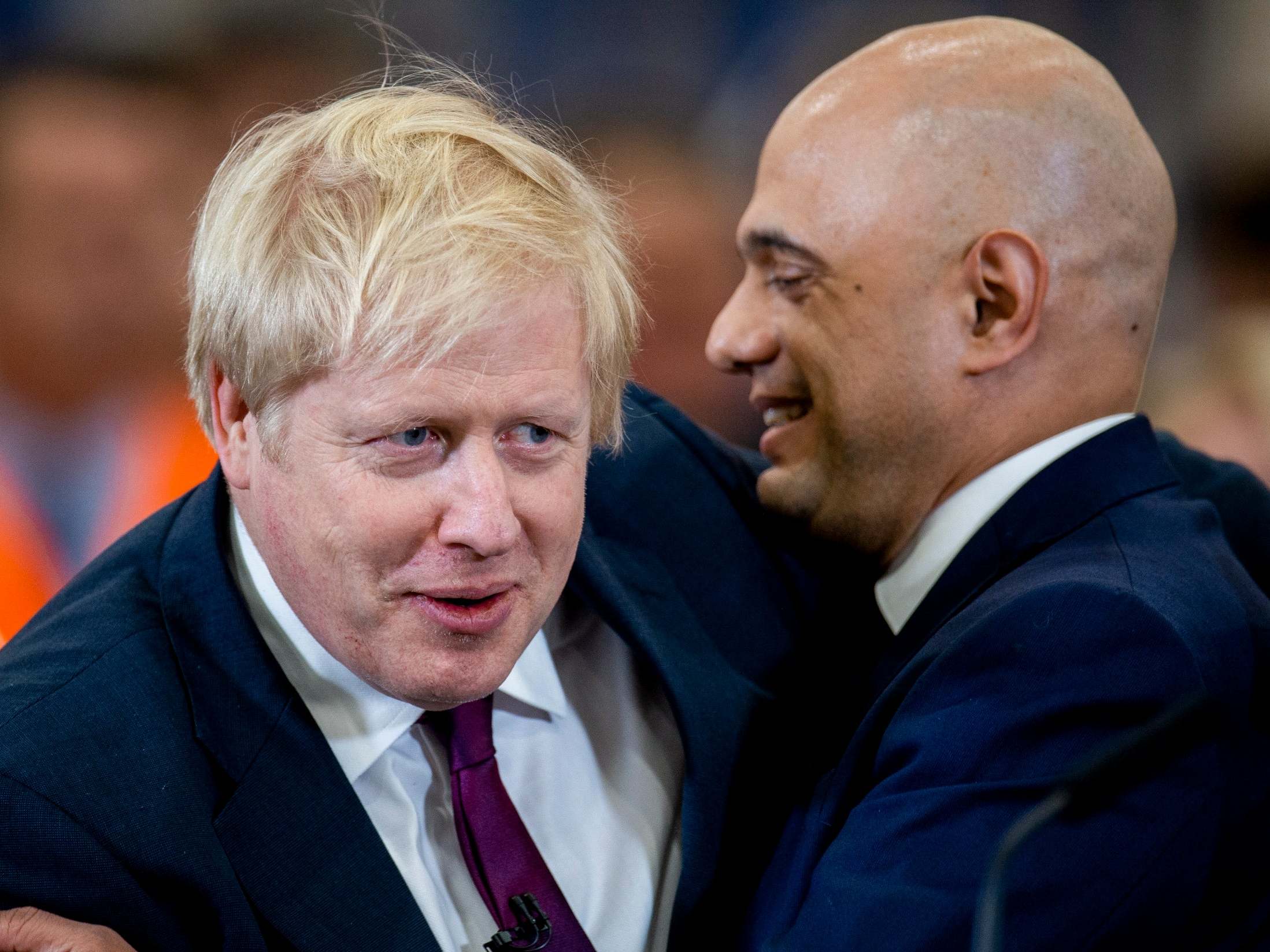Johnson and Javid order cull of ‘poor value’ projects in multibillion-pound round of cuts
Savings intended to redirect cash from pet projects of previous PMs to new administration’s priorities

Your support helps us to tell the story
From reproductive rights to climate change to Big Tech, The Independent is on the ground when the story is developing. Whether it's investigating the financials of Elon Musk's pro-Trump PAC or producing our latest documentary, 'The A Word', which shines a light on the American women fighting for reproductive rights, we know how important it is to parse out the facts from the messaging.
At such a critical moment in US history, we need reporters on the ground. Your donation allows us to keep sending journalists to speak to both sides of the story.
The Independent is trusted by Americans across the entire political spectrum. And unlike many other quality news outlets, we choose not to lock Americans out of our reporting and analysis with paywalls. We believe quality journalism should be available to everyone, paid for by those who can afford it.
Your support makes all the difference.Cabinet ministers have each been ordered to find 10 projects within their department that can be axed to find savings totalling billions of pounds.
Treasury sources said the cuts are designed to shut down poor-value schemes and quangos to free up funds for Boris Johnson’s priorities of the NHS, fighting crime and “levelling up” different regions of the country.
In a letter to colleagues, the prime minister and Sajid Javid have demanded hard commitments on savings totalling 5 per cent of departmental budgets by 2 March – nine days before the chancellor’s first Budget on 11 March.
Among the savings must be 10 options of programmes that can be axed in their entirety ahead of the next Comprehensive Spending Review in the autumn.
The move comes a fortnight after Mr Johnson told the cabinet that it was “time for the slaughtering of sacred cows” as he demanded a cull of pet projects set up by predecessors Theresa May and David Cameron.
Shadow chancellor John McDonnell said then that the move showed austerity was not over, branding it “a cuts round dressed up as an efficiency exercise”.
But a Treasury source told The Independent on Wednesday: “It is not about cuts, it’s about stopping things we are currently doing which aren’t meeting our objectives and ensuring that money is available to spend on our priorities.”
In their letter, Mr Johnson and Mr Javid demanded a breakdown of each departmental budget, demonstrating how it supports the priorities identified by the prime minister.
“We expect the secretary of state to do a line-by-line audit of their budgets and to identify those areas of spend that are ineffective or represent lowest value for money,” they said.
Day-to-day departmental spending – known as DEL – totalled around £330bn in 2019-20, not including spending on items such as welfare or public sector pensions. Biggest spending departments were health (£139bn), education (£68bn), defence (£41bn) and the Home Office (£13bn).
The 5 per cent target suggests that ministers are being asked for more than £15bn in savings, but no detail is yet available on what programmes could be ditched.
Defence spending is likely to come under the microscope, but the expensive HS2 rail scheme – recently estimated to cost as much as £106bn – may fall outside the scope of the exercise, as a decision on whether to go ahead with Europe’s biggest infrastructure project is expected to be made within the next fortnight.
Hundreds of legacy projects dating back to the coalition government under Mr Cameron as well as Ms May’s three-year period in office are likely to come under review, with the starter home initiative for first-time buyers, the national citizen service and the office for tackling injustices thought likely candidates for pruning.
Join our commenting forum
Join thought-provoking conversations, follow other Independent readers and see their replies
Comments